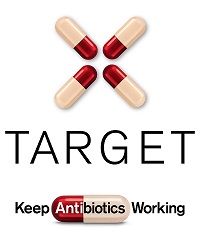Leaflets to discuss with patients
 Using patient
leaflets interactively in consultations is the best way to support effective discussions and maintain patient satisfaction.
Using patient
leaflets interactively in consultations is the best way to support effective discussions and maintain patient satisfaction.
Version 1.0, November 2021.
Self-care Leaflet
Self-care Leaflet HTML

Contents
- What are the symptoms of a common infection?
- What if I think I have coronavirus (COVID-19)?
- How can I treat a common infection?
- How long could my infection last?
- Will my infection need antibiotics to get better?
- How can I stop my infection from spreading?
- What symptoms of serious illness should I look out for?
- What if I suspect signs of sepsis?
- About this leaflet
What are the symptoms of a common infection?
1. Eyes: Sticky eyes.
2. Ears, nose and throat: Pain or soreness; Runny nose; Swollen tonsils.
3. Chest: Cough; Shortness of breath; Green or yellow mucus.
4. Gut: Vomiting; Diarrhoea.
5. Skin: Infected blisters; Redness or swelling around a wound; Athlete's foot (an itchy rash between the toes).
6. Genital and urinary: Pain on passing urine; Passing urine more often at night; Cloudy urine; Discharge; Pain in lower tummy.
COVID-19 specific advice
If you think you may have COVID-19 then please visit GOV.UK's coronavirus section and
the NHS for the latest guidance and information.
Speak to NHS111, a pharmacist or your GP if you are worried about COVID-19.
How can I treat a common infection?
- Get plenty of rest until you feel better.
- Take pain relief if you need to (make sure you follow the instructions).
- Drink plenty of fluids (6 to 8 drinks, or 2 litres) so that you pass pale-coloured urine regularly.

- For coughs, try honey and cough medicines.
- For sore throats, try medicated lozenges and pain relief.
- Soothe eye infections with a clean warm or cold damp flannel.
- For an outer ear infection, apply local heat (such as a warm flannel).
How long could my infection last?
- Cough: 21 days
- Sore throat or earache: 7 to 8 days
- Common cold: 14 days
- Norovirus (winter vomiting): 2 to 3 days
- Sinus infection: 14 to 21 days
Contact your GP if your symptoms are getting worse or if you are not better by the times above.
Will my infection need antibiotics to get better?
- Your body can normally fight off common infections on its own.
- You do not usually need antibiotics, unless symptoms of a bacterial infection (such as a urine infection) are severe – a healthcare professional can advise you on this.
- Taking antibiotics when you do not need to puts you and your family at risk.
- Follow your healthcare professional’s advice on antibiotics.
Find out more about antibiotics at the Antibiotic Guardian website.
How can I stop my infection from spreading?
If you need to cough or sneeze:
- Catch it with a tissue (or your inner elbow)
- Bin it
- Kill it - clean your hands
Clean hands for at least 20 seconds with soap and water or hand sanitiser:
- before preparing and eating food
- after using the toilet
- after touching pets or animals
- when leaving and arriving home
Avoid touching your eyes, nose or mouth with unclean hands. If possible, keep your distance from others (2 meters or 6 feet), especially vulnerable people in your household.
Do not share items that come into contact with your mouth, such as eating utensils and toothbrushes.
Keep yourself and your family up to date with vaccinations. Always get winter vaccines (such as flu) if you are eligible.
What symptoms of serious illness should I look out for?
- Severe headache and vomiting
- Ongoing fever or chills (temperature above 38ºC or less than 36ºC)
- Problems swallowing; Turning blue around the mouth
- Coughing blood
- Breathing faster or slower than usual
- Chest pain or tightness; New very fast or slow pulse
- Kidney pain in your back just under your ribs
- Visible blood in urine; Severe pain on passing urine, or passing more urine at night; Cloudy urine not improving in 1 to 2 days with fluids
If you have the symptoms above, contact your GP urgently or use the following services for your region.
- NHS 111 England
- NHS 111 Wales
- NHS 24 Scotland
- HSA Public Health Agency (Northern Ireland) for your GP practice
These services can provide a confidential interpreter if you need one.
What if I suspect signs of sepsis?
- Slurred speech, confusion or drowsiness
- Extreme shivering
- Passing no urine in a day
- Severe breathlessness
- It feels like you’re going to die, and
- Skin blotchy or discoloured.
Call 999 immediately if you or others have signs of sepsis.
About this leaflet
TARGET is operated by the UK Health Security Agency. Developed in collaboration with professional medical bodies.
Version: 1.1
Published: November 2020
Revision: November 2023